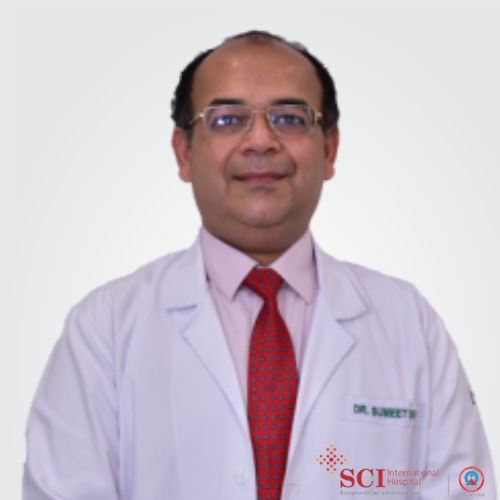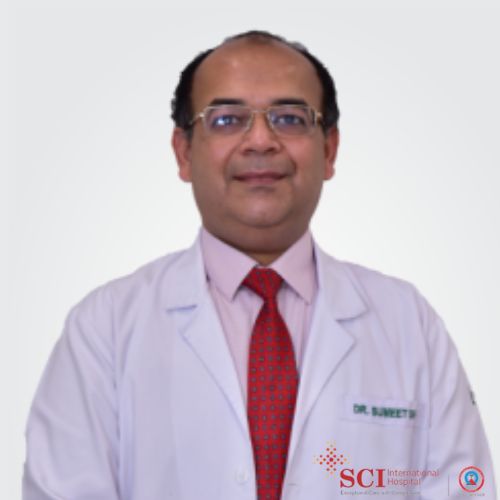What is a Fistula?
A fistula is an abnormal tunnel-like connection between two epithelial-lined organs or vessels. The most common types include anal fistulas, which are abnormal connections between the anal canal and the skin near the anus. Fistulas can result from infections, inflammation, or surgery, and they often require medical intervention due to their potential to cause significant discomfort and complications.
Types of Fistulas
Fistulas can be classified based on their location and cause:
- Anal Fistulas: These occur around the anal area and are often a result of an infection in the anal glands.
- Enterocutaneous Fistulas: Connect the intestine to the skin.
- Vesicovaginal Fistulas: Form between the bladder and the vagina.
- Aortoesophageal Fistulas: Rare but life-threatening, connecting the aorta and esophagus.
Causes of Fistula
Fistulas can develop due to various reasons, including:
- Infections: Chronic infections can lead to abscess formation, which may evolve into a fistula.
- Inflammatory Conditions: Diseases like Crohn's disease are known to cause fistulas.
- Surgical Complications: Post-surgical complications can sometimes result in fistula formation.
Symptoms of Fistula
Common Symptoms
- Persistent Pain and Swelling: One of the most noticeable symptoms of an anal fistula is a constant, throbbing pain around the anus. This pain often intensifies during activities such as sitting, moving, or during bowel movements. Swelling in the affected area is also common and can be accompanied by redness and tenderness.
Diagnosis of Fistula
Initial Assessment
The initial assessment of a fistula begins with a thorough medical history and physical examination. The healthcare provider will:
Diagnostic Tests Several diagnostic tests are used to visualise the fistula tract and its internal opening:
- MRI (Magnetic Resonance Imaging): Provides detailed images of the fistula tract, sphincter muscles, and surrounding tissues. It is particularly useful for identifying the internal opening and the course of the fistula.
- Fistulography: An X-ray of the fistula using a contrast agent to outline the fistula tract. This helps in identifying the path of the fistula and any possible complications.
- Endoscopic Ultrasound: Uses high-frequency sound waves to identify the fistula, sphincter muscles, and surrounding tissues. It is valuable for locating the internal opening of the fistula.
- Three-Dimensional Pelvic Ultrasound: Offers a detailed, multiplanar reconstruction of the anal canal and sphincter anatomy. It is useful for detecting internal openings and fistula tracks with high accuracy.
- Examination Under Anesthesia: Allows for a thorough examination of the fistula tract and identification of any complications. This may include the use of a fistula probe, anoscope, or flexible sigmoidoscopy/colonoscopy to visualize the anal canal and large intestine.
These diagnostic tests are crucial for planning effective treatment and reducing the risk of recurrence.
Treatment Options for Fistula
Treatment varies depending on the type and severity of the fistula:
- Surgical Intervention: Fistulotomy or fistulectomy are common procedures.
- Seton Placement: Used to keep the fistula tract open for drainage.
- Fibrin Glue or Plugs: Minimally invasive options to seal the fistula.
Living with a Fistula
Living with a fistula can significantly impact daily life:
- Impact on Daily Life: Pain and discharge can affect comfort and mobility.
- Diet and Lifestyle Modifications: A high-fibre diet and proper hygiene can help manage symptoms and prevent complications.

Dr. Nabanita Chatterjee
MBBS, MS - General Surgery, General Surgeon

Dr. Sumit Shah
MBBS, MS - General Surgery, DNB - General Surgery, General Surgeon, Laparoscopic Surgeon, Bariatric Surgeon
Prevention of Fistula
Preventing fistulas involves a combination of lifestyle modifications and early detection to reduce the risk of complications.
Preventative Measures
- Maintaining Good Hygiene: Keeping the perianal area clean and dry can help prevent infections that may lead to fistula formation. This includes showering daily and washing the area gently when soiled.
- Managing Underlying Conditions: For patients with Crohn's disease, starting anti-TNF therapies early may be protective against fistula development.
- Dietary Changes: Consuming a high-fibre diet, drinking plenty of fluids, and taking fibre supplements like ispaghula and bran can help prevent constipation and reduce the risk of fistula formation.
- Seeking Medical Attention: Early detection and treatment are crucial to prevent complications. Patients should seek medical attention at the first sign of symptoms such as persistent pain, swelling, or discharge.
Myths and Facts About Fistula
Understanding the facts about fistulas is essential to debunk common myths and ensure accurate information.
Common Myths
- Myth: Fistulas are always caused by poor hygiene.
- Myth: Fistulas are always caused by poor hygiene.
Facts about Fistula
- Fact: While poor hygiene can contribute to infections that may lead to fistulas, they are not the sole cause. Fistulas can result from various factors, including chronic infections, inflammatory conditions like Crohn's disease, and surgical complications.
- Fact: Most fistulas require medical treatment to heal. Without proper intervention, they can lead to severe complications and significantly impact quality of life.
- Fact:Fistulas are abnormal connections between two body parts that are not normally connected. They can occur in various parts of the body, with anal fistulas being among the most common types. Fistulas often result from infections, inflammation, or surgery and require medical attention to prevent complications and improve outcomes.
Conclusion
Fistulas are a serious medical condition that can significantly impact a person's quality of life. Understanding the causes, symptoms, diagnosis, and treatment options is crucial for effective management and prevention. Early detection and intervention are key to preventing complications and improving outcomes.
FAQs
Yes, fistulas are a serious medical condition that can lead to severe complications if left untreated. It is essential to seek professional medical advice and treatment from reputable healthcare providers like SCI Hospital to prevent further issues.
No, most fistulas require medical treatment to heal. Without proper intervention, they can lead to severe complications and significantly impact quality of life. SCI Hospital offers comprehensive treatment plans tailored to individual needs.
While it is possible to live with a fistula, it can significantly impact daily life and emotional wellbeing. Treatment is usually necessary to manage symptoms and prevent complications. SCI Hospital provides expert care to help manage and treat fistulas effectively.
No, fistulas and piles (haemorrhoids) are different conditions with distinct causes and treatments. SCI Hospital has specialists who can accurately diagnose and treat both conditions.
Maintaining good hygiene, managing underlying conditions like Crohn's disease, and seeking medical attention at the first sign of symptoms can help prevent fistulas. SCI Hospital offers preventive care and guidance to help reduce the risk of developing fistulas.
Chronic infections and inflammatory conditions like Crohn's disease are common causes of fistulas. SCI Hospital's experienced team can help identify and manage these underlying conditions.
Sometimes, especially if it's near the skin surface. However, a thorough medical examination is necessary for accurate diagnosis. SCI Hospital provides comprehensive diagnostic services to confirm the presence of a fistula.
Persistent pain, swelling, and discharge are common indicators of a fistula. Seeking medical attention at the first sign of these symptoms is crucial. SCI Hospital offers expert evaluation and diagnosis to ensure timely treatment.
Spicy and fatty foods can exacerbate symptoms; a high-fibre diet is recommended to manage symptoms and prevent complications. SCI Hospital provides dietary counselling to help patients manage their condition effectively.
Consult Now
Our Patients Love Us
Excellent



